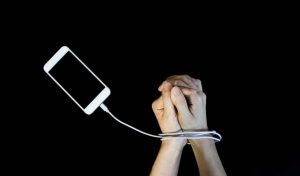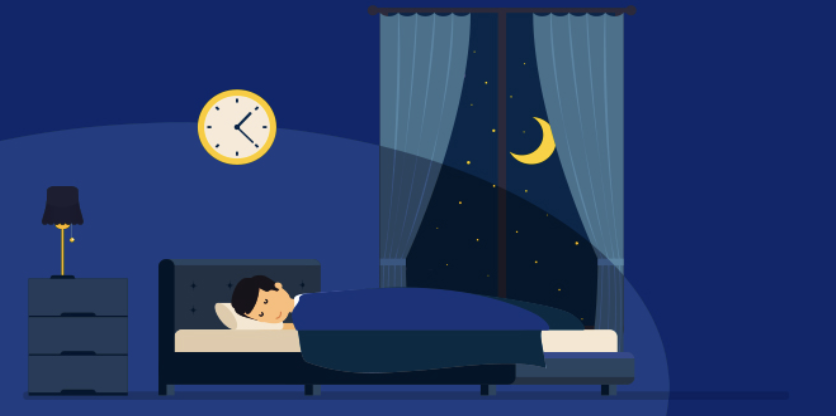
In the past 15 years, technology has developed at an exponential rate. Cellphones, laptops, iPads, and other smart devices have become a huge part of society, glued to each individual for the majority of each day. Today, the information we consume has been cut down and concise, making it faster and more efficient to comprehend as much data as possible in as little time possible. While having so much power in a small device that we have complete access to makes life much more convenient, it also presents many potential dangers.
Cell phone addiction in our society has gotten bad. Even I am aware of the control my cellphone has over me in my everyday life. Clearly this may not be applicable to everyone, but the majority of us are guilty. As soon as we wake up, we check our phones. Whenever we’re bored, we reach for our phones. No matter if we’re stressed, happy, anxious, sad, or overwhelmed, we check our cell phones. How does this toxic cycle begin, and how can we break free from it?

(Isabelle Gregg)
Piedmont Healthcare explains that “When we check our phones, our brains release a small amount of dopamine.” Dopamine is a drug our brains synthesize, making us feel quick and momentary satisfaction and motivation. The sound and vibration of notifications on our cellphones cause quick and easy dopamine rushes. The constant movement on our screens, with colors, shapes, and sounds also heavily contribute to the addictiveness of phones. It has been recorded that 58% of cellphone users don’t go one hour without checking their phones. This is because on our cellphones we are able to revisit, watch, and connect with people and things that make us feel temporarily happy and satisfied. Because our cell phones give us access to so many resources that spark this “happy” feeling, our brain begins to associate our cell phones with these feelings, thus releasing dopamine whenever we spend time on our phones.
Becoming captive to our screens is not only bad for health and brain development, but it also threatens the evolution of society. We live in a society where AI can answer almost every question we could ever ask. We can stare at our screens for hours on end, watching and living in a different reality if we don’t have the courage to face our own. This immediate escape on our cell phones is dangerous and addictive. The first step is admitting maybe you’re a little bit addicted too.
.”
Nobody is saying throw your phone away and churn butter and send telegrams. But finding a happy medium and learning how to put your phone down is vital to live a fulfilling and balanced life. One thing that has really helped me is putting a screen time limit on my phone, just so I’m aware of how much time I’m spending on it. Oftentimes I exceed it, but it feels good to be in control of your cell phone, instead of letting your cellphone control you. Emily Laterneau (10) says she “feels so much more connected to her family and friends when she spends time off of her cellphone.” Instead of reaching for your phone as soon as you’re bored at home, try to do things that will make you feel better for longer. Instead, go outside, read a book, listen to music, write in a journal, clean your room, cook something you love, or just simply think. These things will nourish your body and your mind, leaving time to spend online later. Remember, screentime is only a temporary hit of dopamine, spending quality time in reality will never stop fulfilling us.
































